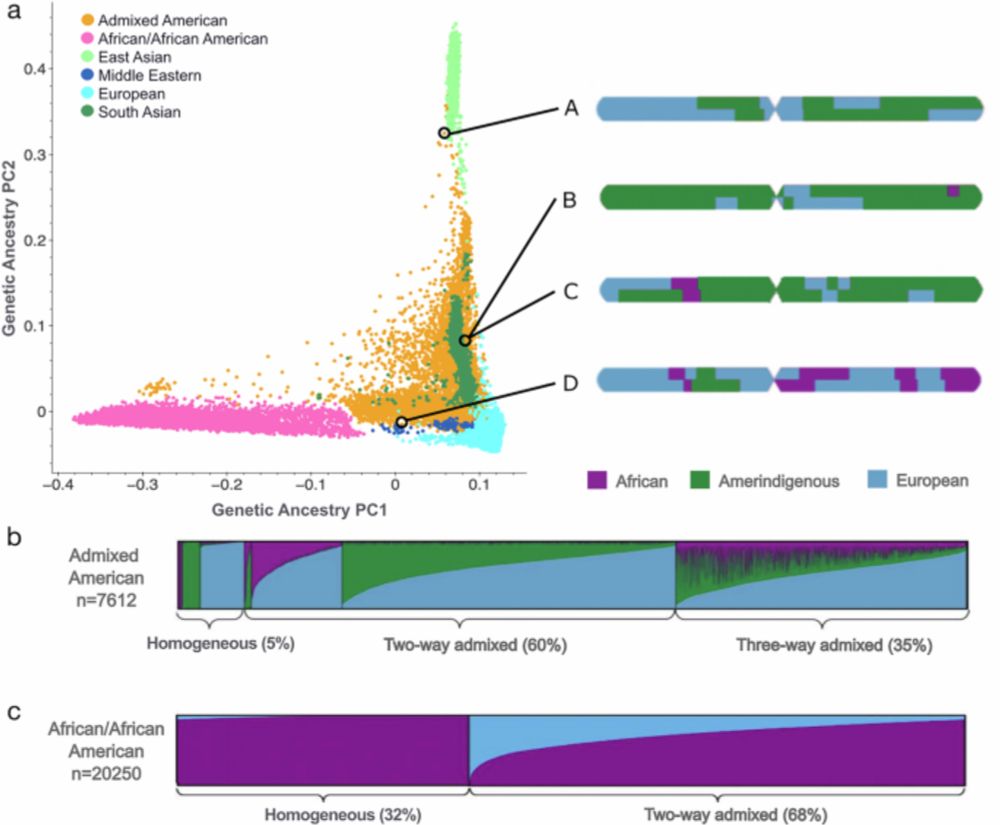Elizabeth Atkinson
@egatkinson.bsky.social
240 followers
400 following
32 posts
Population and statistical genomicist working to make genomics fully representative. Views are my own. (she/her)
Posts
Media
Videos
Starter Packs
Reposted by Elizabeth Atkinson
Reposted by Elizabeth Atkinson
Konrad
@konradjk.bsky.social
· 20d

Pan-UK Biobank genome-wide association analyses enhance discovery and resolution of ancestry-enriched effects - Nature Genetics
Genome-wide analyses for 7,266 traits leveraging data from several genetic ancestry groups in UK Biobank identify new associations and enhance resources for interpreting risk variants across diverse p...
www.nature.com






